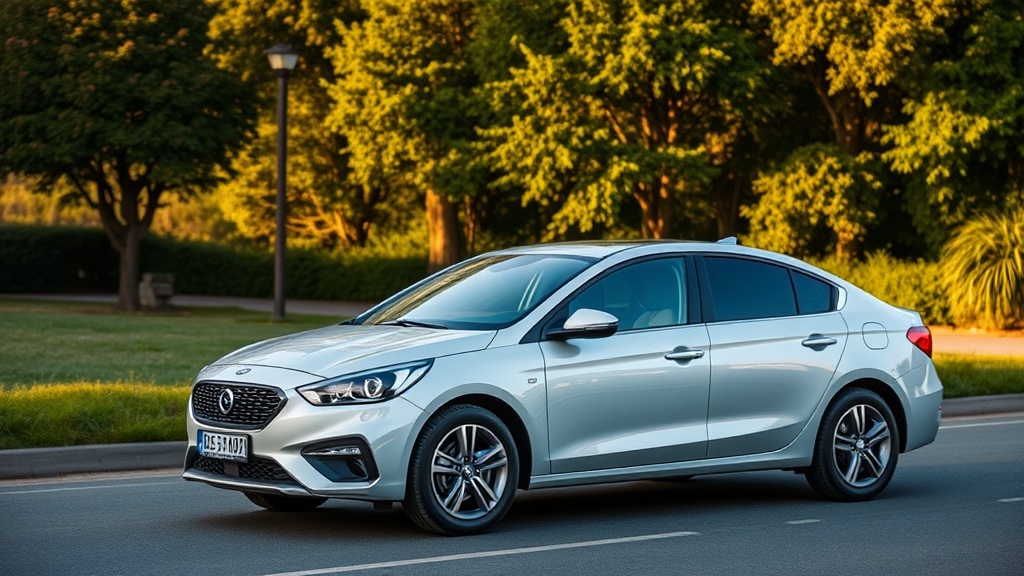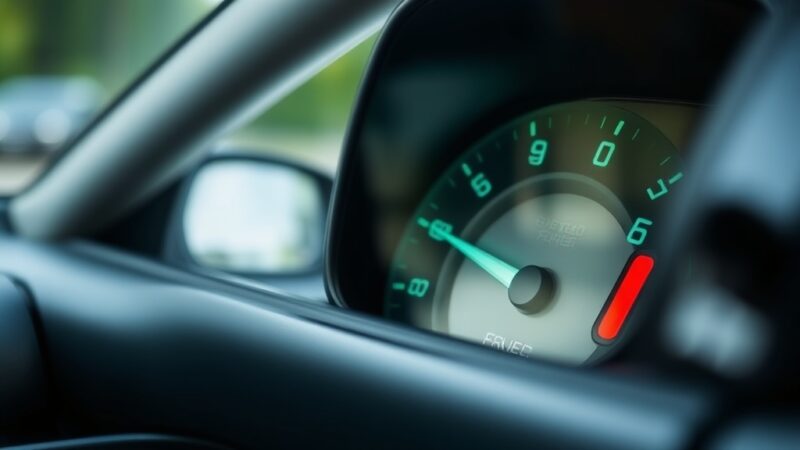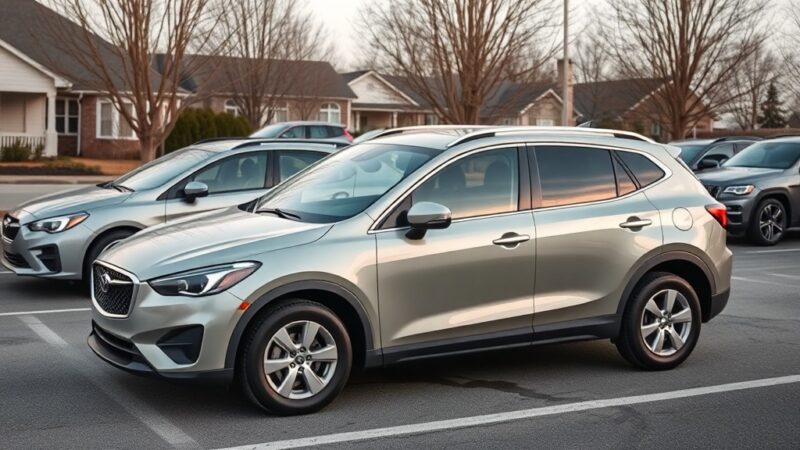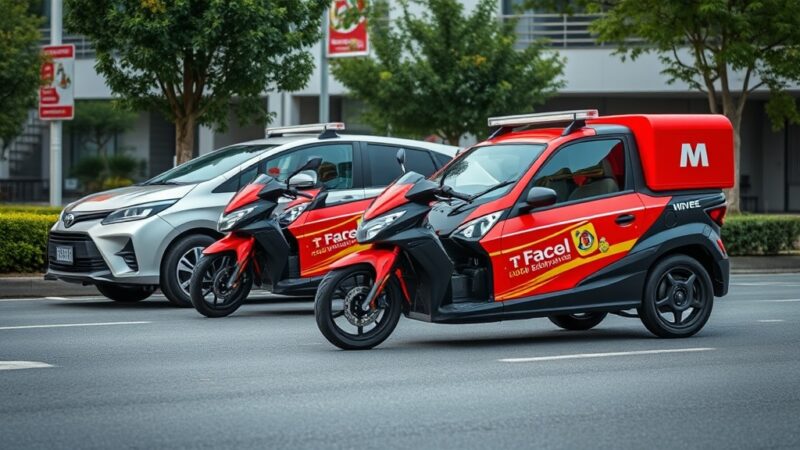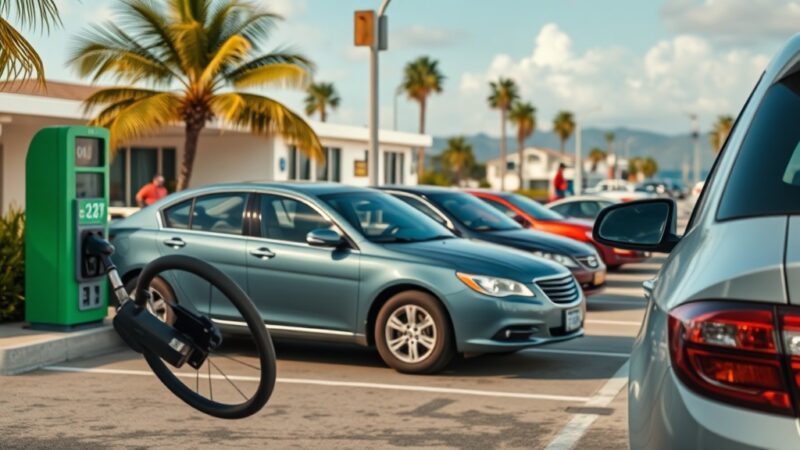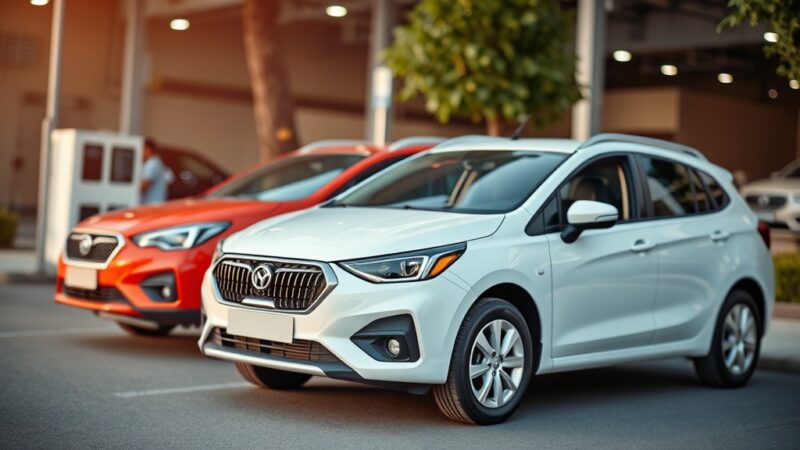Effective Strategies to Compare Cars with the Best Fuel Economy
When choosing a vehicle, many factors come into play, but one of the most significant is fuel economy. Opting for a car with excellent fuel efficiency can save you money and reduce your carbon footprint. Here are effective strategies to compare cars with the best fuel economy.
Understand Fuel Economy Measurements
Fuel economy is commonly measured in miles per gallon (MPG) or liters per 100 kilometers (L/100 km). Understanding these metrics helps you gauge how far a car can go on a certain amount of fuel. Familiarize yourself with the following terms:
- City MPG: This number reflects how efficiently a vehicle uses fuel in urban driving conditions.
- Highway MPG: This metric indicates fuel efficiency during highway driving, where vehicles usually perform better.
- Combined MPG: This figure represents an average of city and highway driving, providing a balanced view of a car’s overall efficiency.
Utilize Online Comparison Tools
The internet offers various tools for comparing cars. Websites like FuelEconomy.gov and Edmunds allow you to view side-by-side comparisons of different models. These platforms typically provide:
- Detailed fuel economy data
- Comparative pricing
- User reviews and ratings
Using online tools not only simplifies your process but also gives you access to current and accurate information.
Check Real World Ratings
While manufacturers provide estimated MPG figures, real-world testing often yields different results. Look for reviews and reports from current owners or automotive experts who share their fuel consumption experiences. Websites like Consumer Reports and automotive forums can be insightful sources for this information.
Consider Hybrid and Electric Options
If fuel economy is your primary concern, you might also want to explore hybrid or electric vehicles (EVs). These cars are designed to be fuel-efficient and often outperform conventional vehicles in terms of MPG. Consider the following:
- Hybrid vehicles: Combine a gasoline engine with an electric motor to improve fuel efficiency.
- Electric vehicles: Run entirely on electricity, resulting in zero fuel consumption.
When comparing these options, look at their current range and charging infrastructure available in your area.
Understand Driving Habits
Your driving style can significantly influence fuel efficiency. Factors such as acceleration speed, braking habits, and even how often you use air conditioning can affect your MPG. Think about how you drive—do you primarily drive in the city or frequently take long highway trips? This can guide your decision on the best vehicle type to suit your lifestyle.
Evaluate Total Cost of Ownership
Fuel economy is just one aspect of vehicle ownership. Be sure to consider other costs such as maintenance, insurance, and resale value. Create a comprehensive breakdown:
| Expense Type | Cost Estimates |
|---|---|
| Fuel Expenses | Annual Cost = (Annual Mileage / MPG) x Fuel Price |
| Maintenance | Estimate based on average yearly expenses for your car model |
| Insurance | Varies by car model; obtain quotes for accurate figures |
| Resale Value | Check resources like Kelley Blue Book for estimated depreciation |
Test Drive
Don’t skip the test drive. A hands-on experience can provide insights that numbers alone can’t. Pay attention to how the car accelerates, brakes, and handles. Evaluate the comfort level and any technology amenities that might enhance your driving experience.
When you gather all this information, you are better equipped to make an informed decision. Choose a vehicle that aligns with your driving habits, needs, and budget. Prioritize fuel efficiency, but don’t overlook the overall value and satisfaction of owning your new car.
Understanding Fuel Economy Ratings and Their Importance in Car Selection
When you’re in the market for a new car, one of the most critical factors to consider is fuel economy. Fuel economy ratings provide insight into how efficiently a vehicle uses fuel. This information is essential not only for your wallet but also for the environment. Understanding these ratings can help you make a more informed decision when selecting a car that fits your lifestyle and budget.
Fuel economy ratings are typically expressed in miles per gallon (MPG) for city and highway driving. The higher the MPG, the more efficient the vehicle. Here’s why these ratings matter:
- Cost Savings: A car with better fuel economy will cost less to operate over time. You save money at the pump and reduce your overall fuel expenses.
- Environmental Impact: Vehicles with higher fuel economy produce fewer emissions, making them a better choice for the environment. Choosing a fuel-efficient car can contribute to lower greenhouse gas emissions.
- Resale Value: Fuel-efficient cars often maintain better resale values. With rising fuel costs, future buyers will likely prefer cars with good MPG ratings.
To better understand fuel economy ratings, it’s helpful to know how they are measured. The Environmental Protection Agency (EPA) conducts tests to determine the fuel efficiency of vehicles. They assess different driving conditions to ensure a comprehensive evaluation. Here are key considerations:
| Test Type | Description |
|---|---|
| City Driving | Tests frequent stops and starts typical of urban driving. |
| Highway Driving | Evaluates driving at consistent speeds on freeways and highways. |
| Combined MPG | Provides an average of city and highway ratings for a more balanced view. |
When comparing cars, pay attention to these ratings. Look for vehicles that excel in both city and highway ratings. Keep in mind that manufacturers may vary in how they report fuel economy, so it’s beneficial to reference the most current data available from reliable sources. You can find this information directly on the EPA’s website or on the window stickers of new cars.
It’s also important to consider your driving habits. If you mostly drive in the city, a vehicle with superior city MPG will be more beneficial. If you spend a lot of time on highways, focus on highway MPG. Aim for a balanced vehicle that aligns with your daily needs. Another factor to consider is the type of car—sedans, SUVs, and hybrids all have different fuel economy standards.
- Hybrid and Electric Vehicles: These options often boast the best fuel economy ratings, as they utilize alternative energy sources. They can be especially effective for city driving.
- Diesel Engines: Diesel cars tend to have higher MPG ratings compared to gasoline engines, particularly for highway driving.
- Small Cars vs. SUVs: Generally, smaller vehicles have better fuel economy. However, advancements in technology have allowed some modern SUVs to achieve competitive MPG ratings.
Moreover, keep in mind that real-world fuel economy can differ from the ratings provided. Factors such as driving style, maintenance, and load can affect how efficiently the car runs. It’s wise to read user reviews and reliability reports to get a realistic expectation of fuel performance.
Before making a final decision, consider testing a few options. Taking a potential new vehicle for a test drive will help you assess factors beyond fuel economy, such as comfort and handling. Additionally, don’t hesitate to explore government programs and incentives that promote fuel-efficient vehicles.
In your search for a new car, understanding fuel economy ratings is crucial. It allows you to assess your choices practically and ethically. With higher fuel economy ratings, you can enjoy financial savings and contribute positively to the environment. Ultimately, the goal is to find a vehicle that meets your needs while being efficient and cost-effective. Remember, informed choices lead to better outcomes!
Conclusion
Selecting a car with the best fuel economy is a vital decision for both your wallet and the environment. By employing effective strategies, you can streamline the comparison process, ensuring you make an informed choice that meets your needs. Start by understanding the various fuel economy ratings, such as miles per gallon (MPG) and the Environmental Protection Agency (EPA) ratings, which provide crucial insights into a vehicle’s efficiency. Evaluating these ratings will help you identify which cars align with your priorities, whether that’s saving money at the pump or reducing your carbon footprint.
Additionally, using online tools and comparison websites can simplify your search, allowing you to quickly assess multiple vehicles side by side. Don’t forget to consider how your driving habits affect fuel economy, as real-world conditions can vary significantly from the numbers provided by manufacturers. Look for user reviews and ratings as they can offer valuable perspectives that official numbers might overlook.
Ultimately, emphasizing fuel economy in your car selection process not only benefits you financially but also contributes positively to the environment. As fuel prices fluctuate, a vehicle with superior fuel efficiency can provide lasting advantages. By following the strategies outlined, you can confidently compare cars, ensuring you choose a model that delivers on both performance and economy. This well-rounded approach will empower you to make a smart, sustainable choice that fits your lifestyle and budget.

